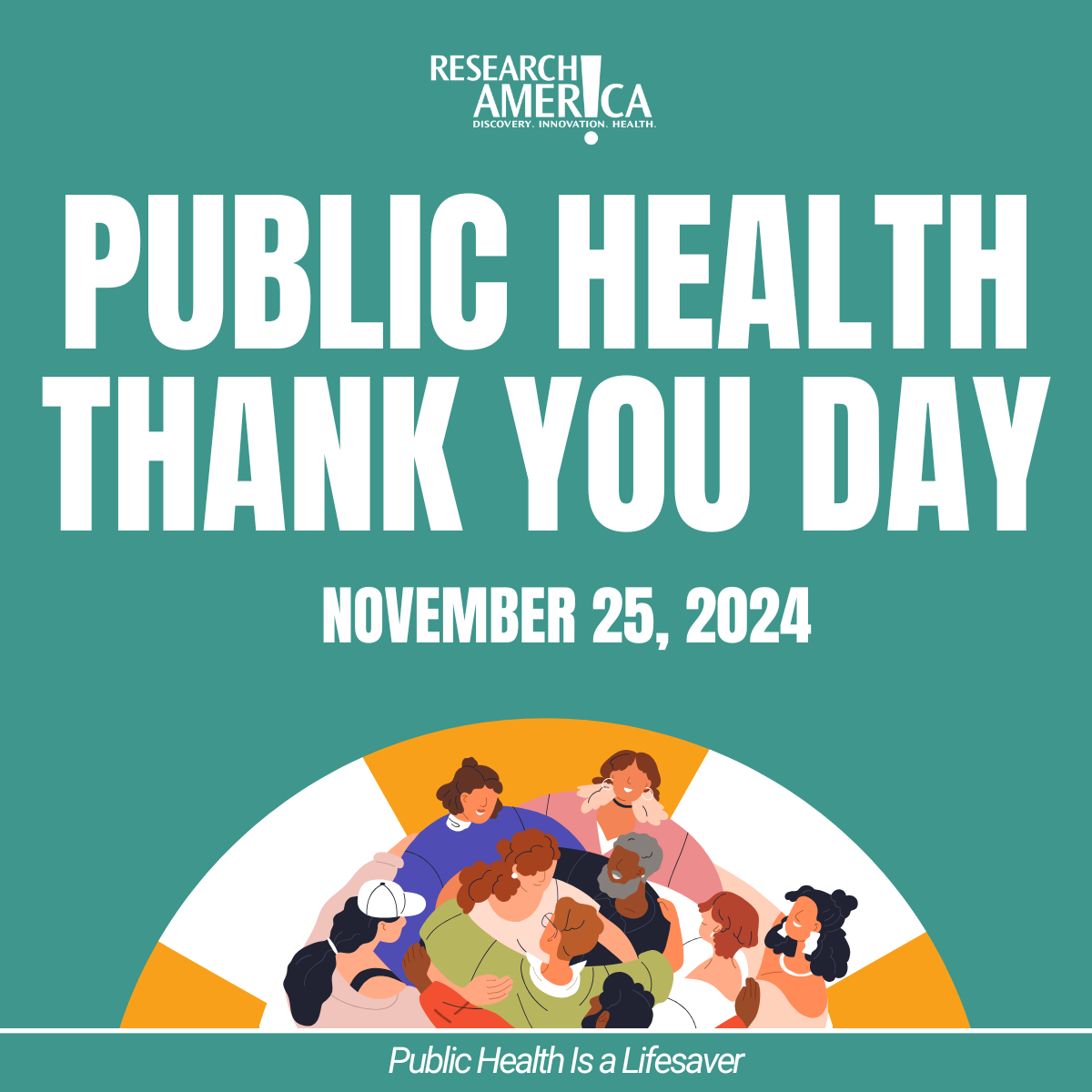The Future of Public Health: One Student’s Vision for Equity and Advocacy

On the Monday before Thanksgiving, Research!America and leading public health organizations take the time to say “thank you” to our public health workforce who work tirelessly every day in communities across the country to protect us from disease, injury, and other health threats. This year’s theme, “Public health is a lifesaver, today and every day.” In honor of Public Health Thank You Day, we’re highlighting this interview with Miyah Reed, our Science Communications Intern.
Miyah Reed holds a Bachelor of Science in Biology and a Bachelor of Arts in Political Science. She is currently pursuing her Master of Public Health at Emory University’s Rollins School of Public Health.
- What inspired you to focus on a particular area of public health, and how has that focus evolved throughout your studies?
Initially, I aspired to become a medical malpractice lawyer. I was drawn to advocating for individuals who experienced harm due to systemic failures in health care. However, as I delved deeper into the complexities of health care systems and observed disparities firsthand, I realized that addressing these issues through policy rather than litigation had the potential for a greater and more sustainable impact.Working with advocacy-focused organizations on community-based projects showed me how important community involvement and communication are in achieving meaningful change. It became clear that sustainable health equity solutions must center on empowering our communities, ensuring their voices inform policy decisions, and bridging the gap between health care systems and the people they serve.
- What emerging public health threats do you think professionals should be prepared to address in the next 5-10 years?
One of the most pressing emerging public health threats is the rise of health misinformation across digital platforms. The COVID-19 pandemic showcased how misinformation about vaccines, mask mandates, and treatment options could derail public health efforts. False narratives circulated faster than many public health organizations, as well as scientific organizations, academic institutions and others could counteract them. These “digital epidemics” undermine trust in science, hinder public health responses, and exacerbate disparities by disproportionately affecting communities with limited access to accurate health information. - Upon graduating, what do you plan to do with your degree?
I plan to use my degree in public health to work in health policy and management, focusing on addressing disparities in maternal and infant health, as well as chronic disease outcomes. My goal is to bridge the gap between health systems and the communities they serve through nonprofit leadership. Eventually, I aspire to establish my own nonprofit organization that centers on health equity, empowering communities through culturally tailored interventions, and sustainable policy changes. - What aspects of health equity are you most passionate about, and how do you plan to address them in your career?
I am passionate about reducing disparities in maternal health outcomes for Black women in America and improving access to quality health care for underserved populations. This passion is not just professional but personal. My commitment stems from my own family’s experiences with the maternal death crisis that disproportionately affects Black women. Witnessing the challenges my family members faced- navigating a health care system that often dismissed their concerns and left them vulnerable- fueled my desire to tackle these inequalities head-on. - What role do you think public health professionals should play in advocacy and policymaking?
Public health professionals have a significant role in bridging the gap between evidence and action. Advocacy is a natural extension of our work- ensuring that the voices of marginalized communities are heard and that policies reflect their needs. Through my previous public health work, I have discovered the importance of storytelling and community engagement in driving change. We are uniquely positioned to translate complex data into meaningful policies, advocate for marginalized communities, and ensure that equity remains at the center of health initiatives.




